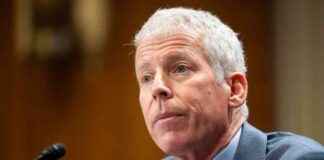In Wyoming, a battle is brewing over rooftop solar expansion. Jason Thornock, a rancher in Cokeville, had high hopes of reducing his $150,000 annual electricity bill by harnessing solar power on his property. However, facing rate hikes from his utility company, Rocky Mountain Power, Thornock saw net metering as a way to level the playing field. Net metering allows homeowners to send excess electricity back to the grid for credit, potentially cutting costs significantly.
The push for rooftop solar expansion came to a head in January before the House Business, Minerals, and Economic Development committee in Cheyenne, where Thornock and others advocated for H.B.183. Sponsored by Scott Heiner, a Republican majority leader, the bill aimed to increase the capacity for rooftop solar installations on schools, municipal buildings, and businesses across the state.
Despite gaining traction in the House, H.B.183 faced challenges in the Senate, where amendments diluted the bill’s impact. Critics argued that net metering could shift costs onto non-solar customers, but experts suggest this concern is minimal until a larger percentage of utility customers adopt net metering systems.
The potential benefits of net metering expansion are vast. For example, the Sweetwater County airport in Wyoming could save tens of thousands of dollars annually by increasing its solar capacity. While some worry about customers overbuilding solar systems for financial gain, experts believe the low compensation rate for excess energy discourages such practices.
The political landscape surrounding net metering in Wyoming is intriguing, as unlikely allies from both ends of the spectrum have come together to support rooftop solar expansion. Despite the bill’s failure this session, the bipartisan support signals a growing consensus on the economic and environmental benefits of solar power.
Looking ahead, Heiner plans to reintroduce the net metering bill in the next general session, aiming to bridge political divides for the greater good of Wyoming. The potential for expanding rooftop solar in the state holds promise not just for cost savings but also for environmental conservation and energy independence.
As the debate over rooftop solar continues, Wyomingites are embracing the idea of harnessing the sun’s energy to reduce electricity costs and protect the environment. While challenges remain, the momentum towards solar expansion represents a significant step towards a more sustainable energy future for the state.














